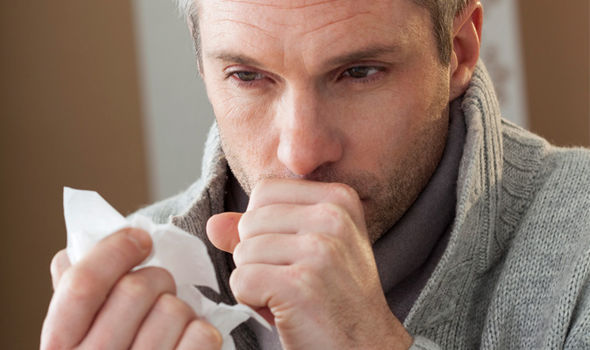What Too Much Alcohol Can Do To Your Health

45m Nigerians Risk Mental Health Problems – Edebi
No less than 45 million Nigerians, approximately 20 percent of the population, are likely to suffer adverse mental health-related problems in their life time.
Disclosing this in Lagos recently, Medical Director, Tranquil & Quest, Dr Otefe Edebi, said 1 in 5 persons in society is at risk of mental health issues.
Edebi who made this assertion during a tour of the new facility based in Lekki-Ajah to offer psychiatric and psychological evaluations to cater for people in need of mental health care in Nigeria said substance abuse and mental health cases were on the rise across the country.
General statistics indicate that about 20 percent of people in any given society in the world, including here in Nigeria, are likely to suffer from one mental ailment or the other,” he said.
We have put together a team of highly-skilled, well-experienced professionals from various fields in mental health care, ranging from consultants, psychiatric nurses, psychologists and supportive professionals on the business side.
Our goal is to address the challenge of rising cases of substance abuse and mental health in Nigeria.” With headquarters in New Jersey, the facility is the brainchild of the Chairman/CEO, Dr Henry Bandele Odunlami, an experienced psychiatrist with over 20 years of experience in mental health.
Easy Technique That Lowers Anxiety And Stress Hormones
Do you ever struggle with things like distraction, insomnia, easy weight gain or energy crashes? I sure have, at various times. From talking to lots of people about their health, I’ve realized probably all of us have these symptoms to some degree. I’ll explain how your mind can be a trigger of many of these symptoms and how you can help it work better.
I’ve proposed that most of our modern symptoms can be traced back to the stress response. This response was a good thing when we lived like cavemen and cavewomen, but in the modern world, it gets set off far too often in situations in which it is no longer helpful. If we can keep this stress response in check, we will feel happier, have better relationships and fewer health issues.
As hard as we try to manage the many events around us, our mind alone can be one of the biggest triggers of the stress response.
It’s Normal To Be Fearful
Imagine your great, great, great (1,000 more greats) grandmother roughly 20,000 years ago. She is fast asleep near a fire when she hears a branch break from the dark forest nearby. She could assume it was something harmless (like the wind) and go back to sleep, or she could feel fear and panic and alert the rest of her tribe to a possible predator.
Those who panicked easily felt more stress, but also survived better and produced easily-panicked offspring, like us.
Mark Twain said:
I . . . have known a great many troubles, but most of them never happened.
It is important to realize that all of our minds are fearful. This is normal. The moment we are free of distraction or habit, our minds start trying to figure out around which corner the next danger might be lurking. These imagined fears can turn on the stress response, even when they are fleeting or below the level of awareness.
Sometimes these fears are so strong that they break into the surface of our awareness in the form of annoying and intrusive thoughts:
- “That will never work.”
- “They are going to laugh at me.”
- “Who are you trying to kid?”
- “I can’t stand the way my hair looks.”
- “Wow, the last thing I said really sounded stupid.”
When I was in college, I needed to have roommates in order to pay the rent. As annoying as some of them were, none were as annoying as the daily, self-chatter I heard from my own mind.
The Present Moment
The more focused your mind is in the present, the less it can upset you with unwelcome, possible, future scenarios. As we move through the day, our minds will become more and more detached from the present.
You may have heard that spending hours a day, for decades, on meditation can help calm this internal chatter. I’ve trained in many types of meditation over the years. Some seemed as complex as I imagine brain surgery would be and took over an hour each day to do properly. My best intentions and discipline would carry me along for some time in these practices, but inevitably, life and my other interests would get in the way, so I’d soon be off track. Maybe you have gone through this pattern with meditation also.
The good news is we now know it doesn’t take heroic efforts to get major benefits. By doing nothing more than lying down and resting for a few minutes, you can transform your mind and lower your stress response. You’ll feel more alert and energized, better focused on your goals, have fewer headaches, less digestive symptoms and sleep better.
A Simple Technique
Try this crazy, simple technique for just five minutes each morning for the next week, and see how you feel:
- Set a timer for five minutes.
- Lie on your back.
- Focus your eyes on a spot on the ceiling.
- Count each time you breathe in.
- If you lose count, start over.
When the timer goes off, you’re finished. That’s it.
It Really Does Work!
In my clinic, I’ve seen that this simple technique lowers anxiety scores and improves the measured levels of stress hormones, sleep and short-term memory. Some people see benefits in the first few days!
The reason this works is because it trains your mind to stay present through thinking about your breath and visually watching a fixed point. It is brief enough that you don’t get antsy and agitated, as many can during prolonged, formal meditation. By having your eyes open, it also keeps your mind from wandering as easily.
I challenge you to test it for just two weeks. Watch the nature of your mental chatter as you go along, and see if it improves. You might be surprised how much better you feel when you don’t have to deal with so many of what Mark Twain called, “the troubles that never happened.”
Menopause and Your Sex Life
Menopause and Sex Life. Not two words you necessarily associate together but actually, the menopause can have a profound effect on your sex life, and not in a good way.
If you’ve had a healthy sex drive up to this phase of your life, it can make you feel under pressure to continue your sex life at the same level as before. Unfortunately, your body has other ideas! For a lot of women, they just feel too tired and then guilty at the fact you’re saying ‘not tonight’ again.
Be assured though, it’s totally normal to not feel in the mood!
Your ovaries stop producing oestrogen which can cause vaginal dryness and make sex painful and difficult, and over time lessen your desire as it just feels too much like hard work.
Hot flushes and night sweats also don’t exactly put you in the mood and make bedtime a sexy place to be! And the weight you’ve gained is seriously affecting your confidence and making you feel pretty rubbish.
Add to that a dip in your testosterone levels, which plays a key role in a woman’s sex drive and sexual sensation, and you can understand why so many women in their 40’s and 50’s have a reduced sex drive. Especially as our sexual desires naturally decline with age anyway.
The good news is you don’t just have to suffer through and accept this as your lot!
There are things you can do to help boost your sex drive and put you in the mood.
Here are few tips:
1. Diet. Certain foods have been found to increase libido:
– Magnesium rich foods including green leafy vegetables, beans and pulses boost levels of your sex hormones.
– Phytoestrogens such as flaxseeds and soybeans naturally mimic oestrogen in your body and increase your sex drive
– Spinach, garlic and coconut, can help boost your testosterone levels which affect your libido
2. Herbs can also be beneficial in helping to boost your libido, including ginseng which helps to boost testosterone, ashwaganda increases blood flow to the clitoris and other female sexual organs and maca root helps to balance hormones and improve sexual experiences and satisfaction.
3. If the feeling is more psychological, due to low mood and a lack of confidence in yourself, then talking about it can really help. Whether that is to your partner, a friend or a health practitioner, know that it is really common and you are not alone.
4. Building strong emotional bonds with your partner, doing things like holding hands, talking and cuddling can help build connection and intimacy with your partner, and put you in the mood.
5. Lubricants can make sex easier and more enjoyable. Go for a water-based one as the most natural way to increase moisture and maintain your vagina’s natural PH.
6. Exercise helps by boosting stamina and strength, which in turn increases your confidence and sex drive. Go for a walk, join a dance class, just do something that you enjoy!
So it is just another natural and normal phase of life and, if you follow the above tips, you can work with it!
Keto diet and its health benefits
Overview
A keto diet refers to a ketogenic diet, which is a high-fat, adequate-protein, low-carb diet. The goal is to get more calories from protein and fat than from carbs. It works by depleting your body of its store of sugar, so it will start to break down protein and fat for energy, causing ketosis (and weight loss).
One extremely popular version of a keto diet is the Atkins diet.
Read on to learn the benefits of the keto diet.
1. Aids in weight loss
It takes more work to turn fat into energy than it takes to turn carbs into energy. Because of this, a ketogenic diet can help speed up weight loss. And since the diet is high in protein, it doesn’t leave you hungry like other diets do. In a meta-analysis of 13 different randomized controlled trials, 5 outcomes revealed significant weight loss from a ketogenic diet.
2. Reduces acne
There are a number of different causes of acne, and one may be related to diet and blood sugar. Eating a diet high in processed and refined carbohydrates can alter gut bacteria and cause more dramatic blood sugar fluctuations, both of which can have an influence on skin health. Therefore, by decreasing carb intake, it’s not a surprise that a ketogenic diet could reduce some cases of acne.
3. May help reduce risk of cancer
The ketogenic diet has recently been investigated a great deal for how it may help prevent or even treat certain cancers. One study found that the ketogenic diet may be a suitable complementary treatment to chemotherapy and radiation in people with cancer. This is due to the fact that it would cause more oxidative stress in cancer cells than in normal cells.
Other theories suggest that because the ketogenic diet reduces high blood sugar, it could reduce insulin complications, which may be associated with some cancers.
4. Improves heart health
When the ketogenic diet is followed in a healthy manner (which considers avocados a healthy fat instead of pork rinds), there is some evidence that the diet can improve heart health by reducing cholesterol. One study found that HDL (“good”) cholesterol levels significantly increased in those following the keto diet. The LDL (“bad”) cholesterol went down significantly.
5. May protect brain functioning
More research is needed into the keto diet and the brain. Some studies suggest that the keto diet offers neuroprotective benefits. These may help treat or prevent conditions like Parkinson’s, Alzheimer’s, and even some sleep disorders. One study even found that children following a ketogenic diet had improved alertness and cognitive functioning.
6. Potentially reduces seizures
It’s thought that the combination of fat, protein, and carbs alters the way the body uses energy, resulting in ketosis. Ketosis is an elevated level of ketone bodies in the blood.
Ketosis can lead to a reduction in seizures in people with epilepsy. The jury is still out on how effective this actually is, though it seems to be most effective on children who have focal seizures.
7. Improves health in women with PCOS
Polycystic ovarian syndrome (PCOS) is an endocrine disorder that causes enlarged ovaries with cysts. A high-carbohydrate diet can negatively affect those with PCOS.
There aren’t many clinical studies on the ketogenic diet and PCOS. One pilot study that involved 5 women over a 24-week period found that the ketogenic diet:
- increased weight loss
- aided hormone balance
- improved luteinizing hormone (LH)/follicle-stimulating hormone (FSH) ratios
- improved fasting insulin
More research is needed.
Risks and complications of the keto diet
The ketogenic diet may have health benefits – including quick weight loss. But it’s important to note that staying on the ketogenic diet long-term can have adverse consequences to your health. These include increased risk of:
- kidney stone formation
- acidosis (high levels of acid in the blood)
- severe weight loss or muscle degeneration (for long-term use)
- In many cases, immediate side effects of the diet may include:
- constipation
- sluggishness
- low blood sugar
- These symptoms are especially common at the beginning of the diet as your body adjusts.
Your brain and body’s primary and preferred source of energy comes from glucose. Because of this, a drastic elimination of carbohydrates isn’t typically a sustainable method of reaching optimal wellness.
Takeaway
Any drastic change in your diet can have potential consequences to your health. Because of this, you should always talk to your doctor or a nutritionist before starting a new diet.
If you’re interested in starting the keto diet, you should be extra careful to check with your doctor if you have diabetes, hypoglycemia, or heart disease.
Because you don’t want your body to stay in ketosis for too long, you’ll want to discuss other options for dietary changes for an extended period of time.
The ketogenic diet encourages the elimination of refined and processed carbohydrates. However, not all carbohydrates are created equal. Many health benefits come from a diet that includes a variety of nutrient-dense, fibrous carbs, fruits, vegetables, lean proteins, and healthy fats.
8 Habits That Harm Your Brain
It’s funny that “the one organ in our brain that thinks is often the one we think less about”. The brain is the most important organ in our body and it’s time we pay more attention to its health and welfare. Here are 8 habits that harm your brain.
Not Sleeping Well
Lack of proper sleep is a bad habit that can significantly hurt your brain. It negatively affects the hippocampus causing a deficit that leads to forgetfulness.
Having Too Much Time to Yourself
Alone time can be great for thinking, reflection and mapping out your dreams and goals. However, when the solitude is too much it can damage the mind and body. It can typically cause brain decline, affect the quality and efficiency of sleep making it less restorative, erode arteries, create high blood pressure, undermine learning and memory and generally take a toll on health; although, most of these effects are gradual and experienced over the course of time.
Eating Too Much Junk Food
Regardless of the fact that you are the kind of person that can eat whatever you like and remain in shape, it is important not be excessive in your intake of junk foods. This is because parts of the brain linked to learning, memory and mental health are smaller and less developed in people who excessively consume junk foods. Natural foods like berries, whole grains, nuts, green leafy vegetables preserve the brain function and slow mental decline.
You Play Loud Music with Earphones or Headphones
Placing the volume of your earphone or headphone at full volume can permanently damage your hearing. It can also cause brain problems involving loss of memory or inability to remember things easily, and loss of brain tissue in your later years. This is most likely because the brain has to work so hard to understand what’s being said around you that it can hardly store what you’ve heard into your memory.
Immobility
The body was made to move and the longer you remain unmoving and inactive the more likely you are to suffer from diseases like diabetes, heart disease, stroke, dementia and high blood pressure which can all negatively affect the brain in the long run. You don’t have to start high-intensity workouts or start running marathons, just take a walk around your house more often or engage in an activity that gets you moving.
Smoking
At this point, it has already been established that smoking is bad for your body. Aside causing lung problems, smoking also shrinks the brain. It makes your memory worse, makes you more forgetful and leads to problems like heart disease, dementia, diabetes, stroke, high blood pressure, lung cancer etc.
Overeating
We are familiar with the saying, “too much of anything is bad”. Too much food, even of the right and healthy kind of food, can hinder the brain from building up a strong network of connections to help you think and remember. Overeating can also lead to obesity which is linked to a number of brain problems like food addiction, impulsive and disinhibited eating and in some cases cognitive problems.
Staying Indoor or In the Dark for Prolonged Periods
For the optimum health of the brain, it is important you expose yourself to natural light as often as you can. This helps to prevent depression and keep your brain working well. Staying in the dark or without natural light for prolonged periods, can slow your brain and cause a decline in the brain.
How to live longer
The following are steps to take if you want to live longer…
Don’t overeat
St. Louis University researchers have confirmed that eating less helps you age slower; in a 2008 study, they found that limiting calories lowered production of T3, a thyroid hormone that slows metabolism—and speeds up the ageing process.
Live healthy, live longer
A recent study found that four bad behaviors—smoking, drinking too much alcohol, not exercising, and not eating enough fruits and veggies—can hustle you into an early grave, and, in effect, age you by as many as 12 years.
Fortunately, you can do something to correct these and other unhealthy behaviours. Adopt the following nine habits to keep your body looking and feeling young.
Get busy
Regular sex may also lower your blood pressure, improve your sleep, boost your immunity, and protect your heart.
Reach out
Loneliness seems to pose the greatest risk for elderly people, who are also prone to depression.
Eat fruits and vegetables
As an added bonus, the inflammation-fighting and circulation-boosting powers of the antioxidants in fruits and veggies can banish wrinkles.
Focus on fitness
Even moderate exercise—a quick, 30-minute walk each day, for example—can lower your risk of heart problems.
3 Tips to assist Strengthen Your Immune system
With the high populations of our time and therefore the prevalence of crowdedness, worrying concerning diseases has become common. There are such a big amount of people running around who might be carriers of debilitating diseases for others. a complex of viruses and bacteria that would ruin some days of your life, or probably kill you.
Not solely do diseases ruin your productivity, however, they conjointly poke a hole in your wallet. you’ll be spending an enormous portion of your money on medicine, simply to medicate yourself. If you are somebody with a weak immune system, drug prices are also a big part of your expenses. it’s even worse once poor immune could be a genetic attribute in your family.
As such, you wish to seek out ways in which to reduce back the chance of sickness as much as you can. an excessive amount of medication, whereas it’s useful, will certainly cause severe side effects that would cause death. you’ll ruin your body over time with the harmful chemicals and antibiotics consumed perpetually. Here are some powerful ways you can boost your immune system.
1. Add Some Sunshine
Researchers are quickly catching on that Vitamin D may be the secret to avoiding the cold and flu. Vitamin D plays an important role in strengthening your defence system to better fight any invading viruses and bacteria. Unfortunately, it is also the number one vitamin deficiency in Americans. Compounding the problem if the fact that Vitamin D is produced when the body gets adequate levels of sunshine, so naturally, even less is produced in the winter months. It has recently been hypothesized that this could be one major reason for the increase in cold and flu cases during the winter season. Because of this, it’s important that we have alternative ways of getting this powerful immune-boosting vitamin. One great source of Vitamin D is cod liver oil. In addition to the Vitamin D it offers, it’s also a great source of Vitamin A, which is an immune system superstar, and Omega 3 fatty acids, which holds significant health benefits for the heart, brain, skin, and much more.
2. An Apple a Day
When it comes to fighting cold and flu, it is essential to decrease your sugar intake. Sugar has devastating effects on the immune system, and the fact that Americans consume an average of 2-3 pounds of sugar per person every year spells bad news come cold and flu season. Not only does sugar increase the production of hormones that suppress the immune system, refined sugar needs micronutrients to be metabolized. This requires your body to use stored vitamins and minerals, further harming your defences. On the other hand, eating a wide variety of fruits and vegetables will make sure that your body is getting all of the vitamins and minerals that are essential to fighting off the cold and flu. Each and every fruit and vegetable is packed with thousands of phytochemicals. No supplement could ever match the power of eating a whole food. Regardless of what vitamin and mineral you take, it should always be as a supplement to a diet high in fruits and vegetables.
3. Keep Balanced
By now, we all know that stress is bad for us. However, relatively few of us are aware of how stress actually impacts the health of the body. When we experience stress, the natural balance of the body is affected in ways we could never imagine. In fact, stress takes an enormous toll on the immune system. For this reason, it is important to find ways to bring the body back into balance. Meditation, prayer, exercise, and yoga are all great ways of taking care of yourself and keeping stress levels low. Chiropractic adjustments also have a significant effect on the nervous system, creating balance, helping to restore the body’s natural healing potential.
Lung cancer and cough: What is the connection?
Despite these problems, coughing actually serves a very valuable and useful purpose. Coughing is a protective action, helping the lungs clear out potential germs or harmful objects.
Sometimes, however, that cough is not linked to a cold or infection and can linger for weeks to months at a time. This may lead people to wonder or worry that their cough is a sign of something more serious, such as lung cancer.
This article takes a look at the connection between coughing and lung cancer, including when someone should see a doctor.
Coughing and lung cancer

A cough associated with lung cancer may be either dry or wet.
Not every cough signifies the presence of lung cancer. However, many people do complain of a chronic cough or a “cough that just won’t go away” at the time of their diagnosis.
If a cough is associated with other symptoms, such as those in the list below, it warrants a trip to the doctor to get checked out:
- coughing up blood or rust-coloured phlegm
- shortness of breath
- chest pain
A cough that is associated with lung cancer can be either dry or wet. It can occur at any time, and even be so severe that it interferes with sleep at night.
Lung cancer symptoms
There are many symptoms other than persistent or worsening coughing that is associated with lung cancer. Some of these symptoms include:
- ongoing chest pain
- coughing up blood
- shortness of breath
- wheezing or hoarseness of the voice
- problems swallowing
- loss of appetite
- losing weight
- Fatigue and tiredness
- frequent lung infections, such as pneumonia or bronchitis
Causes of coughing

Allergies such as hay fever may cause short-term coughing. A long-term cough that does not clear up a few weeks, or that gets worse, may have a more serious cause.
There are many reasons why someone might be coughing. A short-term cough can be caused by:
- an infection, such as a cold, pneumonia, or bronchitis
- an allergy, such as hay fever
- inhaled dust, smoke, or debris
- a long-term respiratory condition, such as asthma or COPD
Sometimes, a short-term cough can develop into a chronic or a persistent cough. When this happens, it may be caused by one of the following factors:
- Long-term respiratory infection, such as chronic bronchitis or pneumonia.
- Asthma, which causes shortness of breath, tightening of the chest, and wheezing.
- Allergies, such as hay fever.
- Smoking. Chronic coughing in a smoker is also known as a “smoker’s cough” and is the result of smoke and other debris irritating the airways.
- Bronchiectasis, which is a widening of the airways in the lungs.
- Postnasal drip, which is mucus dripping down the throat and triggering a cough. This is usually associated with a cold or allergy.
- Gastroesophageal reflux disease (GERD), where stomach acid flows back into the food pipe. The throat gets irritated by the acid and triggers a cough.
- Medications, such as ACE inhibitors, which are used to treat high blood pressure and heart disease.
When to see a doctor
Most coughs clear up within a few days to a few weeks.
It is important to see the doctor if the cough is persistent or occurs along with other symptoms, such as coughing up blood or chest pain.
Seeing a doctor promptly can help to determine the cause of a cough and ensure that nothing more serious is going on.
Diagnosis
Firstly, the doctor will take a thorough medical history and perform a physical exam. In addition to asking about family and personal medical history, the doctor will ask about the history of coughing, shortness of breath, and other symptoms.
During the physical exam, the doctor will listen to the heart and lungs, and look for other potential causes of the coughing, such as signs of an infection or postnasal drip.
Depending on the findings from the history and physical, the doctor may order additional testing. This may include imaging tests, such as:
- a chest X-ray
- CAT scan
- PET scan
- MRI
If lung cancer is suspected based on these results, the doctor will likely want to take a biopsy of the suspicious cells. A doctor can do this by passing a needle into the lung tissue through the skin.
Another way is by bronchoscopy, where a small tube is inserted down the nose and into the lungs. A small sample is removed through the tube and analyzed.
A specialist called a pathologist will look at the cell samples under the microscope to determine if there is cancer. If cancer is present, they will also work out the type, and how far it has advanced.
If lung cancer is diagnosed, the doctor may want to order additional testing to see if it has spread beyond the lungs.
Researchers have also found some genetic markers that can impact how a cancer behaves. This includes whether it is aggressive or spreads quickly, or is responsive to certain hormones.
Some doctors will order genetic testing to look for these genetic markers. Positive results can sometimes help with making treatment decisions, as there are new medications that can be more effective than traditional therapies.
Treatment options

Chemotherapy is a common treatment option for lung cancer, although complete removal of the tumor is usually preferable.
The best treatment for lung cancer is complete removal of the tumor and unhealthy cells surrounding it.
Removal is usually only an option when the growth is small and contained, or has only spread to the nearby tissues.
Radiation or chemotherapy is sometimes also given to ensure that all of the cancerous cells have been removed or destroyed.
Once a tumour has spread significantly, it may no longer be removable or curable. The doctor may recommend radiation or palliative care to prevent further complications and treat symptoms.
New targeted therapies may be more successful in certain groups of people or with particular types of cancers. These include female non-smokers or carriers of certain genetic markers.
The doctor can help work out whether someone may benefit from these types of treatments.
Outlook
The outlook for someone diagnosed with lung cancer depends on the stage of cancer when it is diagnosed.
In general, someone with small cancer that has not spread to other parts of the body has a much better outlook than someone who has an aggressive form of cancer that has spread.
Early diagnosis and treatment are very important in increasing the odds of surviving lung cancer. There is no screening test, which can make early detection more difficult.
The best way to prevent lung cancer is to live a healthful lifestyle and avoid cigarette smoke whenever possible. In addition to not smoking, or quitting smoking, avoiding secondhand smoke is essential.
Someone with a high risk of developing lung cancer, based on either family history or history of smoking, should discuss any unusual symptoms with their doctor as soon as possible. These symptoms include a persistent cough that occurs with chest pain, shortness of breath, or blood.










